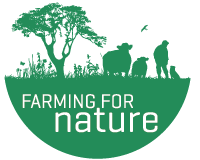Bridget Murphy
INFORMATION
Bridget has been living on and farming mountain land for nearly 20 years. She would be the 8th generation she knows farming the land. She prefers to practice agroecology over agriculture or agribusiness and uses her farm as a case study on issues ranging from governance of the commons, to using native ponies and bees to diversify grazing / forage regimes on the hills. She keeps a flock of Cheviot sheep, four hill ponies and an apiary of native black bees, plants in copses of native woodlands and maintains watercourses and streams. She builds dry stone walls and keeps a few acres under traditional hay meadow. Her land has a healthy wildlife population that includes pine marten, badgers, foxes and lots of hares. The birdlife is prolific and there are small trout in the streams. Heath and blanket bog characterise the higher land parcels, and for the last decade she has been working on rewetting sections of the land; she sees the value in the allowing the natural habitat to return and recognises the need to keep the carbon stores locked in the ground. She is a long time land rights activist from her early days fighting the Apartheid system in South Africa and claiming land back for rural black communities, she is also a long time ecofeminist. Bridget became an Farming For Nature Ambassador in July 2020.
NOMINATION DESCRIPTION 2019
I think this farmer deserves national recognition for his/her work in farming for nature because: Bridget has been living on and farming mountain land on her own for nearly 20 years. She would be the 8th generation she knows farming the land. She prefers to practice agroecology over agriculture or agribusiness and uses her farm as a case study on issues ranging from governance of the commons, to using native ponies and bees to diversify grazing / forage regimes on the hills. She keeps a flock of Cheviot sheep, four hill ponies and an apiary of native black bees, plants in copses of native woodlands and maintains watercourses and streams. She builds dry stone walls and keeps a few acres under traditional hay meadow.
Her land has a healthy wildlife population that includes pine marten, badgers, foxes and lots of hares. Earlier this year a red squirrel was sighted. The birdlife is prolific and there are small trout in the streams. “I will be passing on this land to generations to come, and I want to hand it over as nature intends, not humans”.
Traditionally, this land has been perceived as marginal or even ineligible for farming. Heath and blanket bog characterise the higher land parcels, and for the last decade she has been working on rewetting sections of the land. Her great uncle applied for grants in the 1970’s to drain the mountain land, however she sees the value in the allowing the natural habitat to return and recognises the need to keep the carbon stores locked in the ground.
Bridget is currently looking at having bees and wild pollinators determined a livestock unit so that the habitat so badly needed for biodiversity can be provided by farmers in the new CAP Strategic Plans. She is involved in Hill farmers and Women in Farming organisations and has addressed the Oireachtas on several occasions ( the Joint Committee on Agriculture and the Climate Action Committee) speaking on climate change and the hill farming community.
“For too long we have eroded the very foundation of our agricultural and food security systems, our livelihoods and our rural communities. It is critical we look to restoring healthy eco-systems that provide habitat for biodiversity and contribute to climate actions. We talk about farmers being the custodians of the land, however we have only paid farmers for producing off the land. We need to broaden our understanding of what productivity is and include products like habitat, clean air and water, carbon sequestration and protection of carbon stores.”
Nominator: Grainne Calvey, Farming For Nature Ambassador (Calvey Family) 2018
Listen to 10min podcast with Bridget below (September 2020) and/or view an online interview Bridget gave about her farm below in a Ask The Farmer Q&A Session (August 2020)







